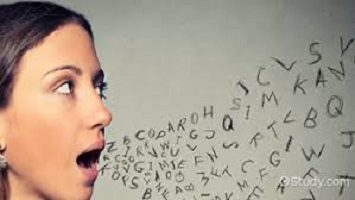Trisyllabic words Examples and Trisyllables or disyllables
Trisyllabic words
Trisyllabic words are words that have three syllables. They are also called trisyllables or trisyllabic words.
Music, warning and learning are three-syllable words because they are made up of three syllables: mú-si-ca / a-vi-so / a-pren-der.
Examples of Trisyllabic words
- abdomen (ab-do-men);
- mite (á-ca-ro);
- sugar (a-sugar);
- needle (a-gu-lha);
- alibi (á-li-bi);
- tomorrow tomorrow);
- amiable (a-ma-vel);
- scope (am-bi-to);
- friend (a-mi-go);
- angle (angle);
- cheer (â-ni-mo);
- tree (tree);
- rough (rough-rough);
- basic (basic-si-co);
- calculation (calculus);
- character (ca-rá-ter);
- affection (ca-ri-nho);
- famous (cé-le-bre);
- circle (cir-cu-it);
- jealousy (jealousy);
- food (co-mi-da);
- critical (cri-tic-ic);
- difficult (di-di-cil);
- debt (debt);
- season (é-po-ca);
- school (es-co-la);
- success (ê-xi-to);
- physics (fi-si-ca);
- phosphorus (phosphorus);
- gender (gender);
- cute (gra-ci-nha);
- graphic (graphic);
- awesome Awesome);
- index (in-di-ce);
- intact (in-te-gro);
- useless (u-useless);
- judgment (ju-í-zo);
- liquid (li-qui-do);
- logical (lo-gi-co);
- machine (machine);
- maximum (max-xi-mo);
- doctor (doctor);
- allowance (me-sa-da);
- method (mé-to-do);
- minimum (mini-ni-mo);
- minutes (mi-nu-tos);
- muscle (muscle);
- number (number);
- oblique (o-oblique);
- glasses (ó-cu-los);
- bus (ô-ni-bus);
- page (page-gi-na);
- word (pa-la-vra);
- panic (pâ-ni-co);
- bird (pás-sa-ro);
- bad (hell);
- sock (pe-ú-ga);
- plastic (plastic);
- possible (pos-sí-vel);
- practice (practice);
- next (next-xi-mo);
- public (public);
- fast fast);
- reporter (re-pór-ter);
- revolver (re-revolver);
- Saturday (Saturday);
- output (out-out);
- health (sa-ú-de);
- sauva (sa-ú-va);
- syllable (sí-la-ba);
- greedy (sô-fre-go);
- solid (solid);
- sudden (sú-bi-to);
- sustenance (sus-ten-to);
- terrace (terrace);
- title (title-you);
- tonic (tô-ni-ca);
- toxic (toxic);
- traffic (go-traffic);
- traffic (traffic);
- tragic (trá-gi-co);
- traffic (transit-si-to);
- last (last-ti-mo);
- single (u-ni-co);
- valid (va-read);
- true true);
- visible (vi-sí-vel);
- victim (victim);
- widower (vi-ú-vo);
- cup (cup).
Trisyllables or disyllables?
The difficulty in identifying trisyllable words arises in the syllabic division of apparent proparoxytone calls, such as genius, glory, series and vacuum, that is, in the division of words ending in -ea, -eo, -ia, -ie, -io, -oa, -ua, -uo, among others
Some authors consider that these words are formed by post-tonic rising diphthongs, with only two syllables:
- genius (genius);
- glory (glory);
- series (series);
- dozen (dozen);
- eagerness (an-sia);
- copy (copy);
- sorrow (má-goa);
- building (building);
- caries (ca-rie);
- tenuous (tenuous);
- female (female);
- leisure (occio);
- vacuum (vacuum);
- radio (radio);
- lily (li-river);
- site (site);
- mummy (mummy).
Other authors argue that these words are formed by gaps, thus presenting three syllables:
- genius (gé-ni-o);
- glory (glo-ri-a);
- series (sé-ri-e);
- dozen (dú-zi-a);
- eagerness (ân-si-a);
- copy (copy-pi-a);
- sorrow (má-go-a);
- building (pre-di-o);
- caries (cá-ri-e);
- tenuous (have-nu-e);
- female (he did it to me);
- leisure (ó-ci-o);
- vacuum (va-cu-o);
- radio (radio);
- lily (lí-ri-o);
- site (sí-ti-o);
- mummy (mú-mi-a).
Before the entry into force of the current spelling agreement, these words could be considered paroxytones or proparoxytones, consequently disyllables or trisyllables. However, the present agreement considers them proparoxytones, therefore, trisyllables .
Classification according to the number of syllables
Words can be classified according to the number of syllables they contain. This classification regarding the number of syllables is based on the syllable division.
According to the number of syllables the word has, it can be classified into:
- monosyllable;
- disyllable;
- trisyllable;
- polysyllable.
A word is monosyllable when it consists of one syllable:
- with;
- you;
- dust;
- south;
- there.
A word is disyllable when it consists of two syllables:
- car;
- table;
- Photograph;
- pay;
- time.
A word is trisyllable when it consists of three syllables:
- food;
- soccer;
- exit;
- bowl;
- bald.
A word is polysyllable when it consists of four or more syllables:

